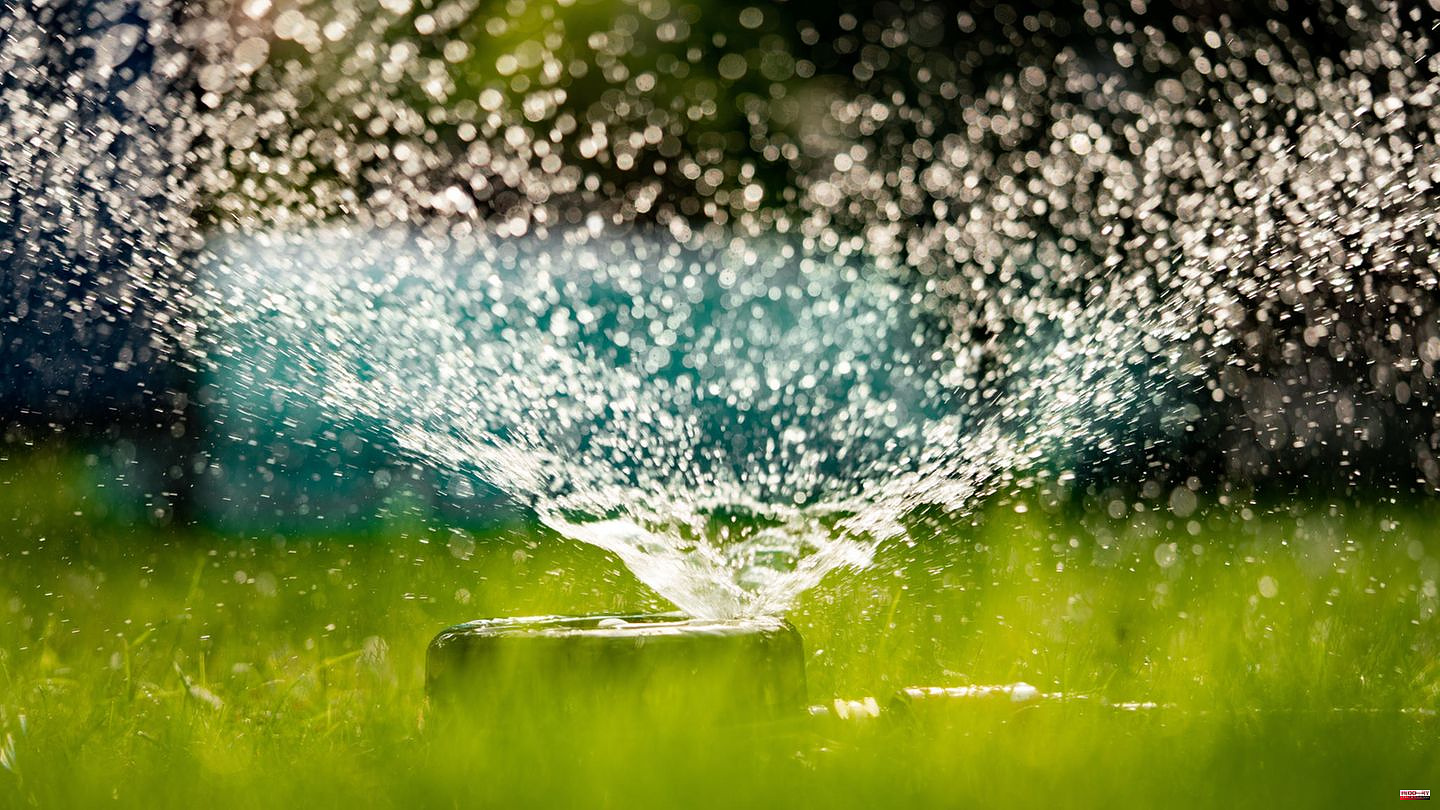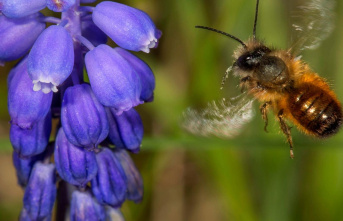For sun worshipers, the summers of the past few years have been a blessing. In many regions of Germany, Klarchen was on duty continuously over the summer holidays. Hardly a cloud. Not a trace of rain far and wide. It's been like this for a few years now. And not only the farmers have to be creative every time because of the long drought. Many a gardener can also watch the blades of their carefully manicured lawn burn. Unless he grabbed the green in time with an extra portion of water under the roots. But be careful: Because the cool water could become increasingly scarce in some regions of the republic, allotment gardeners should be particularly considerate when watering the lawn and act sparingly.
You can find out how to walk the tightrope in this article.
Grasses usually have very short roots. In longer periods of drought, at some point they are no longer able to fetch water from the depths of the ground. Depending on the soil and the position of the lawn, the stalks thirst for around 2.5 liters of water per day (and square meter). A few sporadic downpours are by far not enough. So if you don't want to leave your lawn in the scorching sun, you should help yourself from time to time. The principle applies here: don't make a mess every day, but pack up once a week.
If you want to water your lawn properly and sustainably, you shouldn't put the sprinkler out on the lawn for a few minutes every day. Because that is no more than a drop on the dry stalks. The water stays just below the surface. And that has unpleasant consequences. On the one hand, the lawn becomes matted faster. In addition, the roots establish themselves just under the turf and wait for replenishment every day. If that doesn't happen - for example during the holiday season - the stalks dry up. If, on the other hand, you get the lawn used to a weekly, extensive shower, the blades of grass can survive a few days without fresh water.
As with ornamental and crop plants, the same applies to lawn watering: treat yourself to a break in the midday heat and get the garden hose out of the shed early in the morning or in the evening. In the blazing sun, the water droplets on the sensitive blades of grass act like magnifying glasses. The result: ugly yellow and brown spots instead of rich green. And there's another reason why it's better to put your feet up in the midday hours. On the warm soil, the water evaporates faster than it can ever seep into the soil and reach the roots. In other words: anyone who waters their lawn in the midday sun is wasting valuable water needlessly.
Tip: Water the lawn early in the morning when the soil is still a little damp from the night's dew and the ground is cool. If you water in the evening, the snails are more happy than the sacred lawn. The green stays wet longer at night - and becomes a paradise for hungry slugs.
Small lawns are best watered with the good old watering can. This takes a little more effort and time - but is usually enough. A garden hose with the appropriate attachment is much more convenient and makes sense for larger lawns. However, you kill two birds with one irrigation system. Not only do they distribute the water evenly over the meadow, they also ensure a lot of fun for children. Such helpers can also be programmed using a timer and set in motion at a specific time. Tinkerers and technology freaks like to rely on an underground irrigation system that distributes a fixed amount of water in the ground at certain times.
As beautiful as a lush green lawn in front of your own house or in the allotment garden may be: Lawn sprinklers use up to 800 liters of water in one hour. Water, which is no longer available in abundance in Germany. Some communities in Hesse even had to declare a water emergency in the summer of 2020. Despite all the love for their own greenery, allotment gardeners should also use the important resource of water consciously and responsibly in this and the next dry summer.
Important: After mowing the lawn, the meadow does not have to be watered. Unless you have additionally fertilized. In this case, the fertilizer should be poured so that the fertilizer gets into the soil.
Sources: "gartenjournal.net"; "mein-schoener-garten.de"
This article contains so-called affiliate links. Further information are available here.












